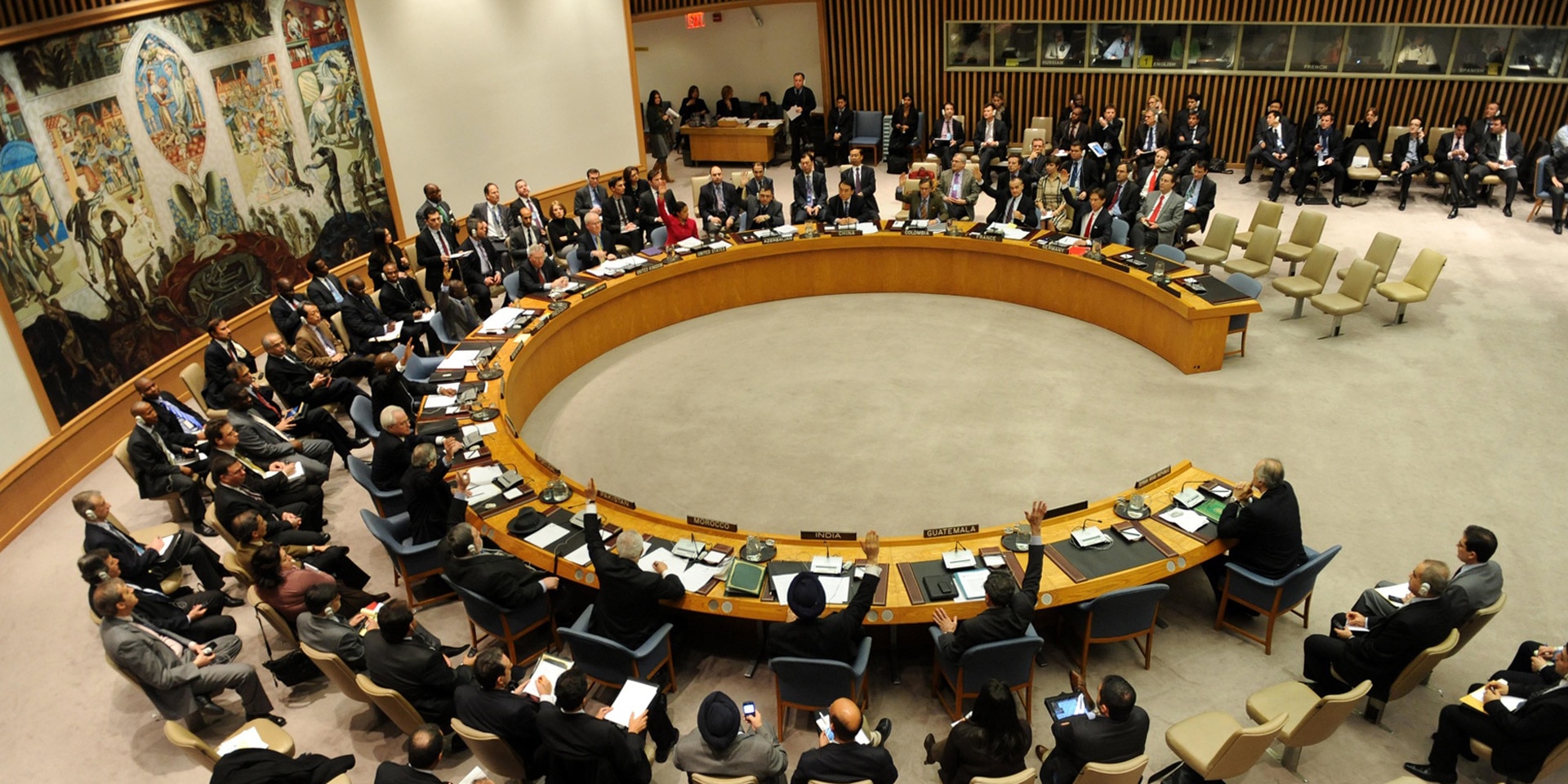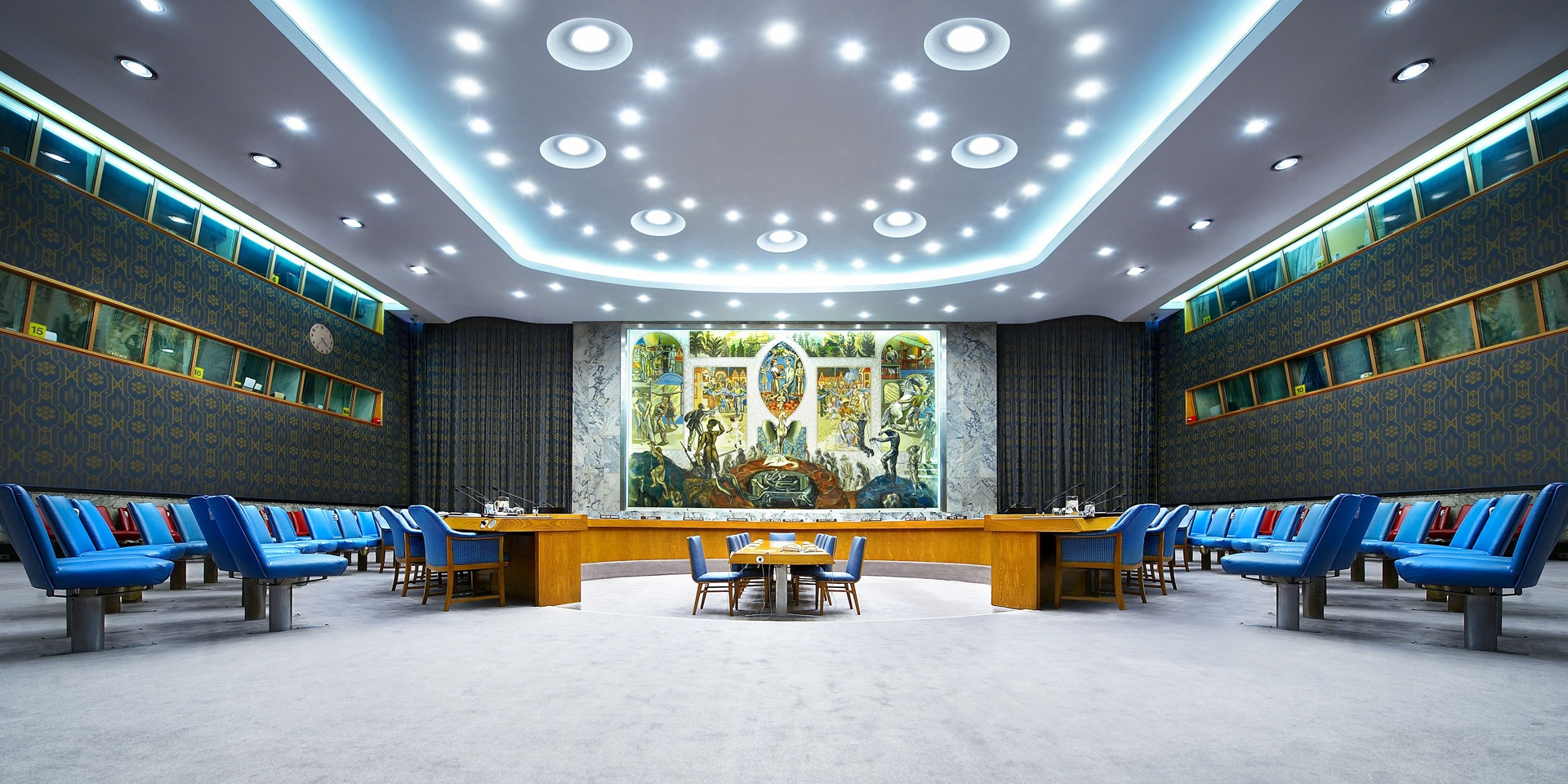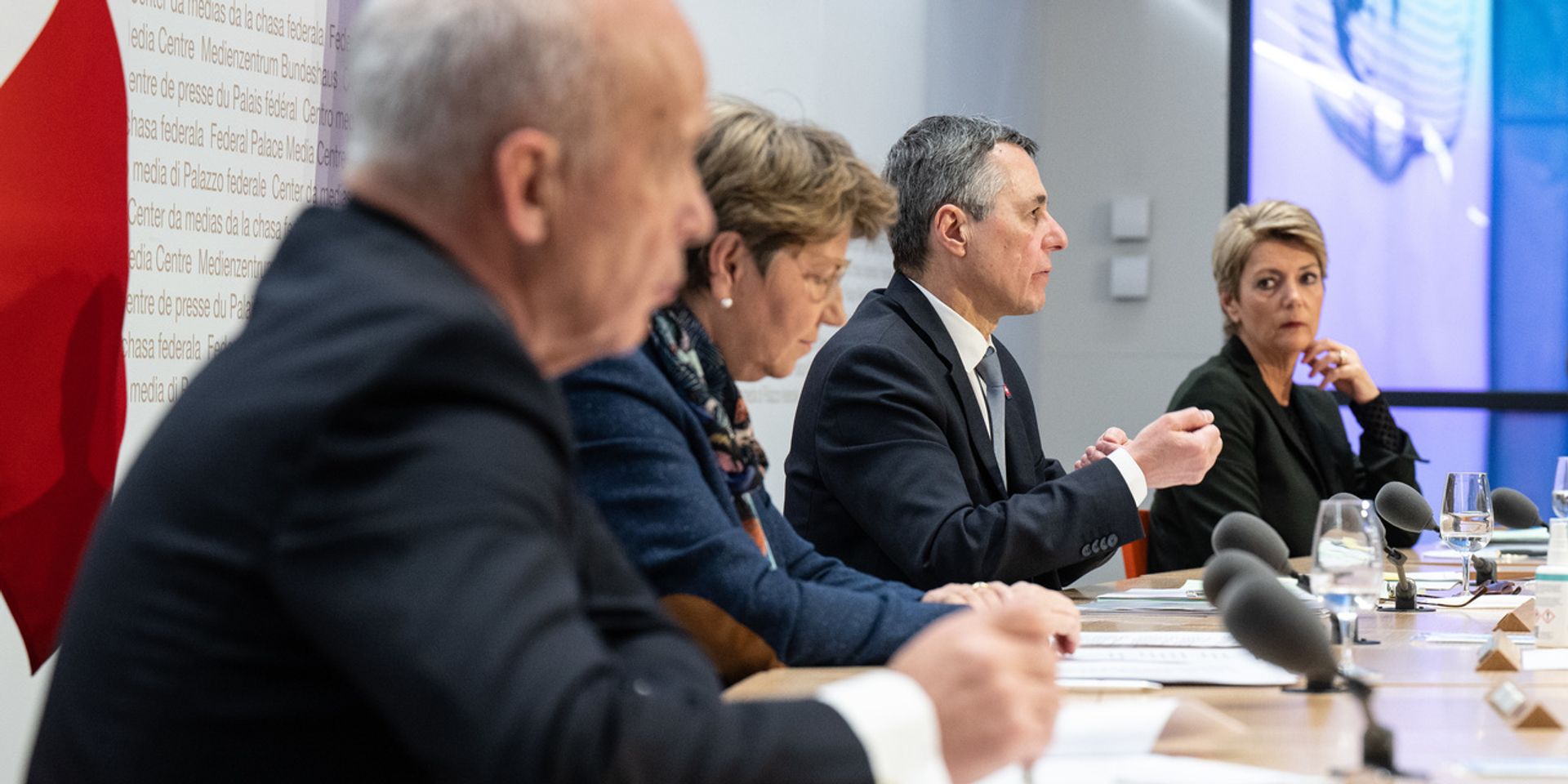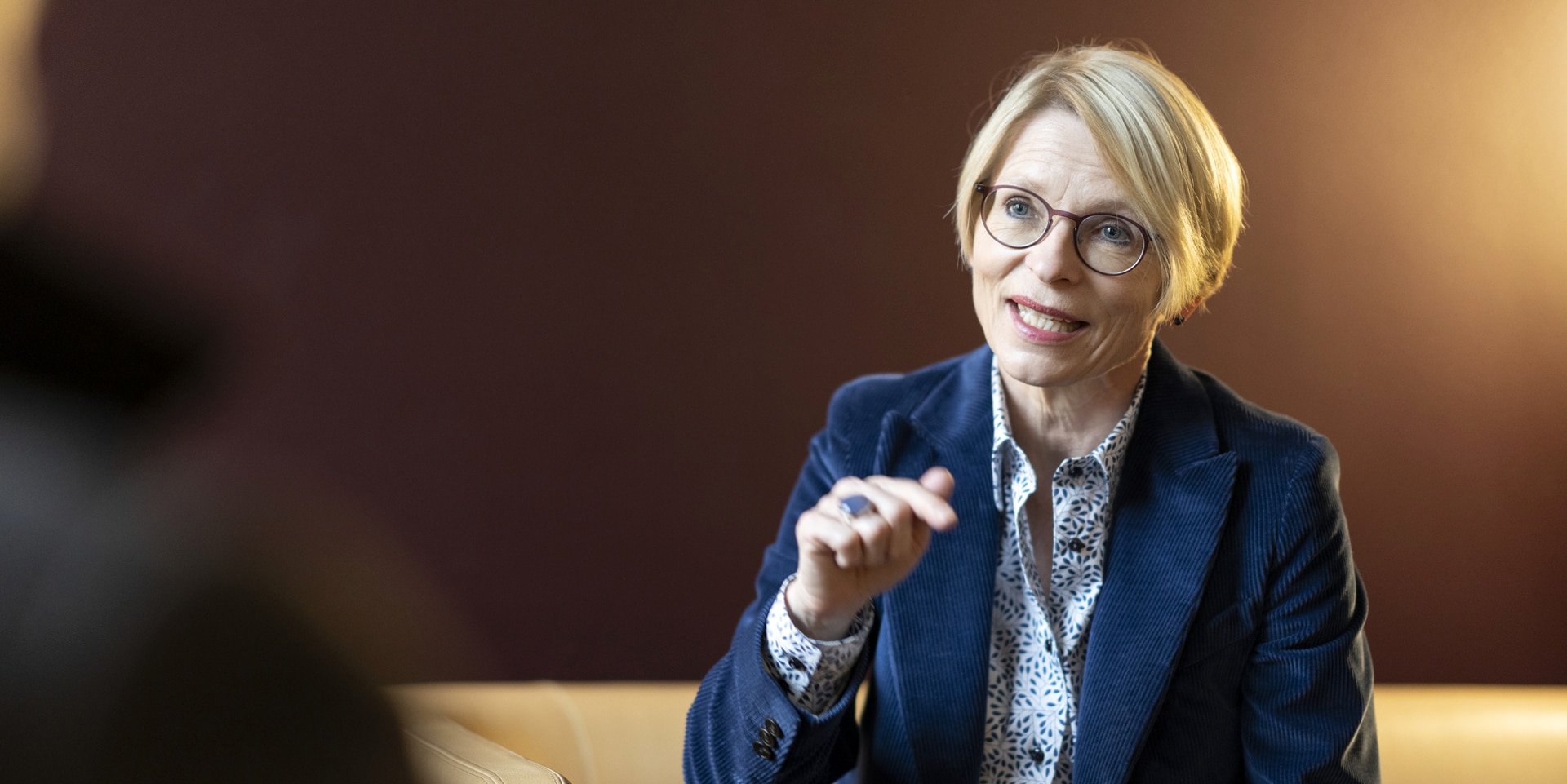Q&A: Switzerland and the UN Security Council
Switzerland's seat as a non-permanent member of the UN Security Council in 2023/24 is a recurring topic in the public debate. The FDFA provides answers to the central questions.

Voting on a resolution in the UN Security Council. © Keystone
Can Switzerland maintain its neutrality while serving on the Security Council?
In its 2015 report concerning Switzerland's candidature for a non-permanent seat on the United Nations Security Council for 2023–24, the Federal Council stated that Switzerland could continue to fully exercise its neutrality while serving in the Security Council. The Security Council is not a party to a conflict in the sense of neutrality law. Its mandate is to maintain international peace and security. In addition, other neutral and non-aligned states such as Austria or Ireland have repeatedly been members of the Security Council. In today's polarised environment, neutrality is an advantage, not an obstacle: Switzerland has no hidden agenda and will work to promote dialogue and decision-making by the Council. Switzerland is obliged to take stances on controversial issues in and outside the UN regardless of its membership on the Security Council.Switzerland's positions are based on the Federal Constitution and international law, including the Charter of the United Nations.
What is the real role of small states within the Security Council?
They contribute new ideas and play a key role in making the Council's action more balanced. Despite the permanent members' advantages – their veto power and wealth of experience – they depend on the support of non-permanent members: a resolution requires at least nine votes. Non-permanent members often play a key role in important decisions. One example here is the Security Council's 2019 authorisation of a UN mission to monitor the ceasefire around the port city of Hodeidah in Yemen. Another example is the Security Council's adoption – also in 2019 – of a resolution promoting efforts to find people gone missing in war. In 2021, Norway together with Niger succeeded in introducing and adopting a resolution in the Council to promote the protection of education in conflict. Regarding Syria, the Security Council was also able to adopt resolutions thanks to the efforts of non-permanent members. These resolutions have to date allowed cross-border access for humanitarian aid and the passage of tens of thousands of aid convoys.
What are Switzerland's priorities within the Security Council?
On 31 August 2022, the Federal Council adopted the following four thematic priorities following consultation with the foreign policy committees: building sustainable peace; protecting civilians; enhancing effectiveness; and addressing climate security. These priorities build on Switzerland's long-standing and well-known profile as well as on its commitment in the UN and in the area of peace and security.
Why should Switzerland become a member of a body that is deadlocked due to conflicts between the major powers?
Globally, the Security Council is the most important body for the promotion of peace and international security. Despite strong polarisation, the Security Council adopts between 50 and 70 resolutions each year. These include the UN's peacekeeping and political missions, with up to 100,000 peacekeepers and civilian experts deployed on five continents. The Security Council's objective is the same as that enshrined in Switzerland's Federal Constitution: to promote peace worldwide. As in other international bodies such as the WTO and the G20, the Security Council's dynamics reflect the current global political situation. The decisive factor is the conduct of its members, not the institution itself. As a member, it is possible to make a difference, whereas as a non-member, this is only possible to a very limited extent.
How does the situation in Ukraine influence the Security Council?
Russia's military aggression against Ukraine is mobilizing the UN and influencing multilateral cooperation. The Security Council has reacted to the course of the war with a high frequency of meetings, but can only take limited decisions on Ukraine because of the Russian veto. There is no general “deadlock" of the Security Council at the moment: Meetings are taking place as planned and decisions (e.g. extension of UN peacekeeping missions) continue to be made. Over the coming months, it will become clear how the dynamics outside the Ukraine context will continue to develop in the Security Council.
Is Switzerland able to take positions quickly on current affairs and international tensions?
We do so for all important foreign policy issues, regardless of whether Switzerland is a member of the Security Council or not. Our positions on peace and security are no secret. If we express our our positions at a Security Council meeting, or if there is a vote on a given issue, we vote on the basis of our foreign policy strategy and our foreign policy profile. This was shown by the example of Ukraine: In the first weeks after the start of the Russian aggression, there were four procedural and substantive votes in the Security Council; at the time, Switzerland had already publicly expressed its views on the conflict in other forums, based on the immediate condemnation by the Federal Council and its subsequent decisions. A positioning would have been possible without any problem in the aforementioned votes. Switzerland also regularly expresses its views on current affairs and sensitive issues on the UN Human Rights Council.
Would a seat on the Security Council jeopardise Switzerland's good offices and mediation role?
Security Council membership would be in keeping with Switzerland's peace policy engagement and good offices. Through a seat on the Council, Switzerland would be able to contribute its rich experience and bring its peacebuilding credibility to bear for the benefit of the international community. Other states have been able to assume important roles during their two-year term on the Security Council. Sweden, for example, hosted the UN peace talks for Yemen in Stockholm in 2018 and Germany played an important role in early 2020 through the Libya conference in Berlin. In January 2022, Norway hosted a Taliban delegation in Oslo for talks with Western governments and afghan civil society.
Would Switzerland be able to resist pressure from the big powers, for example to support military interventions?
Switzerland already has to take a stand on many sensitive foreign policy issues in a wide variety of bodies, e.g. as part of its work within the OSCE and on the Human Rights Council. Conflicting objectives are commonplace in foreign policy. As a Security Council member, Switzerland will also safeguard its interests and values, which are enshrined in the Federal Constitution and set out in international law.
How many additional posts are needed for the membership?
Based on surveys with comparable non-permanent members, the additional staff required in the FDFA during the mandate period in the Security Council was estimated at 25 posts. The resulting human resources level would be lower than the average of those of other elected Security Council members. Moreover, in comparison, the Security Council candidature entails fewer additional posts than the OSCE chairmanship in 2014. The Federal Council approved these plans in spring 2020. Most of the temporarily required additional resources will be compensated internally by the FDFA. Staff numbers are to return to the pre-bid level after the end of the term.
How is Parliament be involved during Switzerland's Security Council term?
In September 2020, in its report on Switzerland's seat on the UN Security Council and the involvement of Parliament, the Federal Council outlined specific proposals on ways to involve Parliament. Parliament's foreign affairs committees (FACs) concluded their discussions on this matter in October 2021. It was agreed that the Federal Council involves the FACs by regularly providing them with reports containing information on recent developments and Swiss initiatives. The FACs were consulted regarding Switzerland's Security Council priorities and are also involved when clearly defined and compelling circumstances (e.g. the creation of a new sanctions regime or the authorisation of a military intervention) require such consultation.
Why is Switzerland active in the United Nations?
The UN was founded after the Second World War to maintain "international peace and security". This objective, which is in line with the Swiss Federal Constitution, has not yet been achieved: according to the UN, the number of countries in conflict is at highest level in 30 years. In order to achieve peace and security, multilateral organizations such as the UN are now more important than ever.



